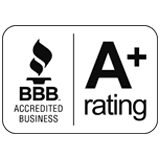Sussex County Credit Card Fraud Defense Lawyers
Fraudulent Use of a Credit Card and Theft Attorneys in Sparta NJ

Credit card fraud is on the rise, becoming one of the most common types of white collar crimes in New Jersey, including in Sussex and Warren County. These crimes can take many different forms ranging from making false statements to obtain a credit card, stealing another person’s credit card, to using a counterfeit credit card. Generally, credit card crimes are considered third or fourth degree crimes, depending upon the underlying circumstances. Either way, credit card offenses in New Jersey carry potential periods of incarceration and hefty fines, as well as potential restitution to the victim. It is important to take the right steps in defending yourself if you are accused of credit card fraud or credit card theft violating N.J.S.A. 2C: 21-6.
The first call you should make if you are charged with a credit card offense is to our experienced criminal defense attorneys who have successfully handled matters in the criminal courts in Sussex and Warren County for many years. We serve clients charged with stealing and fraudulently using credit card information in Mansfield, Andover, Phillipsburg, Wantage, Frankford, and throughout New Jersey. Contact us today at 973-755-1695, or complete our online contact form to discuss your charges in a free consultation. We are available 24/7 to help you or a loved one with your case.
Understanding Credit Card Fraud in New Jersey
Usually, the first thought that comes to mind for credit card fraud charges is someone taking another person’s credit card or stealing someone’s identity. The nature of New Jersey’s statute, however, covers multiple offenses classified as credit card fraud. Although N.J.S.A. 2C:21-6 is broad, the statute itself provides different definitions relating to the possession, issuance, and receipt of a credit card while also placing emphasis on particular types of conduct that can lead to being charged with credit card fraud offenses.
According to N.J.S.A. 2C:21-6(c), a person who takes or obtains a credit card from the person, possession, custody, or control of another without the cardholder’s consent or who, with the knowledge that it has been so taken, receives the credit card with intent to use it or to sell it, or to transfer it to a person other than the issuer or the cardholder is guilty of a crime of the fourth degree.
Similarly, N.J.S.A. 2C:21-6(h) sets forth that a person who knowingly uses any counterfeit, fictitious, altered, forged, lost, stolen, or fraudulently obtained credit card to obtain money, goods or services, or anything else of value; or who, with unlawful or fraudulent intent, furnishes, acquires, or uses any actual or fictitious credit card, whether alone or together with names of credit cardholders, or other information pertaining to a credit card account in any form, is guilty of a crime of the third degree.
Most Common Actions Violating NJSA 2C:21-6
Taking or using a credit card without consent, receiving lost or stolen credit cards, buying or selling credit cards, counterfeiting, fraudulent use of credit card(s), and intent to defraud all constitute credit card fraud under the parameters of the statute. The overall purpose of this statute is to address and largely account for offenses involving the issuance, utilization, control, and taking of credit cards. Moreover, the statute addresses any misuse or abuse associated with credit cards. Therefore, credit card offenses can overlap with other offenses such as forgery and theft by deception. As a result, it is important to highlight that being charged with one offense does not insulate a defendant from being charged with other offenses.
Providing False Statements to Get a Credit Card
For instance, under the statute, a fourth-degree offense can result from an individual procuring a credit card by providing false statements. What does that mean? Let’s say that you went to your local department store, and the cashier says: “You will receive 20% off of your entire purchase if you sign up for our credit card today.” You immediately think, “Wow! Twenty percent off my purchase is a lot. That sounds great.” So, you begin the process of applying for the card and think I will never get accepted for this card if I only put that I make $15,000 per year. Thus, in the annual income section, you say that you make $85,000. Ultimately, you receive the credit card and begin racking up hundreds of dollars’ worth of debt that you are unable to pay. Here, you provided a false statement that led to the issuance of the credit card. Your false statement in this context can be argued from a state and federal level because it interferes with interstate and intrastate commerce. Had it not been for your false statement, you likely would not have been issued the card or the allowable credit limit that you were given.
Pretending to be Someone Else with a Credit Card
Another example of this type of offense may be going to that same department store and misrepresenting who you are. For instance, you may say that you are someone else and even provide a fake ID or license to validate the false identity. Not only could you be charged with an offense contrary to N.J.S.A. 2C: 21-6, but you may also be charged with theft by deception, forgery, fraud, receiving stolen property, or even identity theft.
Credit Card Theft: Taking a Card without Consent
Pursuant to the statute, credit card theft is also specified and provides different scenarios in which one can be charged with this type of offense. For example, according to N.J.S.A. 2C: 21-6c(1), a person can be found guilty if he or she takes a credit card from someone else without consent. In these cases, the State must prove that the card was knowingly and actually taken without the owner’s consent. The standard of proof in these cases is beyond a reasonable doubt. Thus, the State must prove that the defendant meets each element to prove someone guilty of this crime by demonstrating that the defendant acted: knowingly, actually, and lacked consent from the owner.
Possible Penalties for Credit Card Crimes in New Jersey
For the most part, credit card fraud cases are either third- or fourth-degree offenses. Crimes of this nature are classified as felonies. Felonies expose a Defendant to serious jail time and large fines. Specifically, anyone convicted of third degree credit card fraud will be facing three to five years in prison and up to a $15,000 fine; and a person convicted of fourth degree credit card theft is facing up to eighteen months in prison and a $10,000 fine. Further, a Defendant’s case is likely heard in the Superior Court.
If, for some reason, a case involves multiple states or is involved in a scheme that defrauds multiple victims, the case could be heard in a federal court. In either court venue, some important defenses surround whether the defendant knowingly or intentionally acted. Similarly, if the Defendant was provided consent to use another person’s card and what evidentiary support that is available to support that. Regardless of whether your case is at the Superior Court or if it is at the federal level, these charges can lead to your liberties and freedoms seriously being compromised. Thus, it is important to discuss your case with an attorney and determine what options are available to you.
Can I get Pretrial Intervention for a Credit Card Fraud Charge?

Other Situations that can Lead to Credit Card Theft and Fraud Charges in NJ
Credit card theft charges can also “come up” in cases circumstantially where the defendant was committing another crime and police discover that the defendant has cards that are not his or her own. For instance, Defendant “A” from Pennsylvania was driving in her car and pulled over for a traffic violation in New Jersey. During the traffic stop, the officer noticed that the Defendant left a syringe on the passenger seat. Additionally, as she opened her glove box to obtain the vehicle registration there was a box of ammunition. As she was fumbling about in her glove box, three credit cards fell out with different names. Subsequently, officers searched her vehicle based on probable cause and found an unloaded firearm in the back seat and drugs. Later she was charged with Unlawful Possession of a Weapon without a Permit, contrary to N.J.S.A. 2C:39-5B (1), a second-degree offense, Prohibited Weapons, and Devices – Large Capacity Ammunition, contrary to N.J.S.A. 2C:39-3J, a fourth-degree offense, Receiving Stolen Property, a third-degree offense, Possession of CDS, contrary to N.J.S.A. 2C:35-10A(1), third-degree offense, N.J.S.A. 2C:36-1, for possession of paraphernalia, and credit card theft, contrary to N.J.S.A. 2C: 21-6c(1). From this scenario alone, Defendant “A” is facing serious fines and penalties because she is being exposed to multiple felonies.
Here, Defendant “A” has a lot to overcome in her defense. Considerations regarding the credit cards: how did she obtain them, were the credit cards stolen, did she have consent to use the cards? Considerations regarding firearms: does she have a permit from her home state, is the firearm legal, who is the owner, and is the ammunition legal from her home state? Considerations regarding the drugs/paraphernalia: how much drugs were in the vehicle, were they hers and does she own the car? While there is so much more to consider under that fact pattern, it is important to discuss a case with someone competent in the legal field to determine appropriate defenses and case strategies.
Contact a Belvidere Lawyer to Defend Your Credit Card Theft or Fraud Allegations
The penalties for the above credit card crimes anywhere else in New Jersey include prison time and fines. You can be charged with multiple counts of the same offense as well. In other words, during one incident you could be charged multiple times depending on the amount of the credit cards found in your possession or how many times you fraudulently use a credit card. If you are charged with a credit card theft or fraud offense in Warren or Sussex county, our talented team of criminal defense lawyers may be able to help you avoid the consequences of prison time and even avoid a conviction altogether.
We have handled countless cases involving indictable crimes in Superior Courts across New Jersey, including the Sussex County Superior Court in Newton and the Warren County Superior Court in Belvidere. We are always available to help anyone charged with an offense for forging, misrepresenting, taking, or unlawfully credit cards and information. For more information and a free consultation about your case, please contact 973-755-1695 today.











